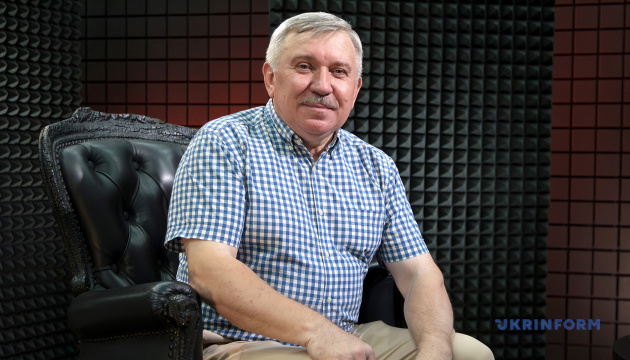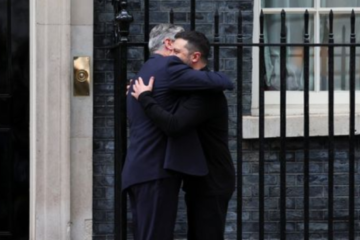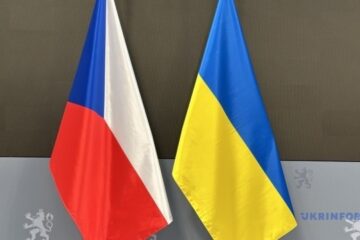This conversation was taped and broadcast on August 7, the following day after President Trump’s Special Envoy Witkoff visited Moscow. At that time, Trump’s meeting with Putin scheduled for August 15 in Alaska was yet to be confirmed, but this conversation highlighted other important issues related to the ceasefire and peace talks that still remain of relevance.
Summing up the third meeting between Ukraine’s and the Russian Federation’s delegations to July 23 bilateral talks in Istanbul, Turkey, Secretary of the National Security and Defense Council of Ukraine Rustem Umerov said, “Our priority is always on people, on ceasefire and a meeting of leaders. Peace is achievable. But to achieve peace Moscow must shift its approach from ultimatums to responsibility, from war to decisions.”
On July 28, President Donald Trump expressed frustration with Russian President Vladimir Putin and said he would reduce the 50-day timeline he gave Russia to agree to a peace deal with Ukraine.” I am shortening the 50 days that I gave him to a smaller number, because I think, I already know the answer to the question of what will happen next… If you know what the answer is going to be, why wait?” Trump said speaking at a news conference in Scotland. “I want to be generous, but we just don’t see any progress being made.”
“”I’m not interested in talking to Putin anymore,” Donald Trump said responding to a question about whether his personal meeting with Putin could help improve the relationship between the two presidents and achieve a ceasefire in Ukraine.
Meanwhile, Russian missile and drone strikes continue unabated on civilian targets in cities across Ukraine. An early July 31 attack claimed 31 lives in Kyiv.
This was the situation as it was at the end of July. As the deadline Trump had set for Putin to cease fire and start negotiations approached, the situation continued to develop. Moscow, surprisingly enough, expressed interest in talking to Witkoff, apparently in order to once again demonstrate its “desire for peace” and once again promise fantastic prospects for cooperation.
And suddenly, after Witkoff’s meeting with Putin in the Kremlin, everything changed, events accelerated, and the intensity of contacts at the level of heads of state quickly went off the charts. Now the talk is no longer about the “hell sanctions” (although they have not yet been canceled), it’s about urgent preparations for Trump’s meeting with Putin, and then with Zelensky.
So, what is happening? How to interpret the events? And most importantly, what to expect after August 8. In this conversation, Ukrinform is discussing this with Mykhailo Honchar, president of the Center for Global Studies “Strategy XXI”.
[embedded content]
– What signals are coming from Moscow, from Washington, from Europe, from Kyiv, and how should they be interpreted? I have the impression that Trump has set a deadline for himself. And before the deadline expired, he pulled a trick that changed everything. Is that so?
– It seems like that. We are watching a kind of Trump show: deadlines are set, then changed according to some unpredictable algorithm. In fact, there may be a certain algorithm for progress in negotiations, behind-the-scenes or official.
But here we see just such chaotic things. I think it looks like chaos when we do not take into account what is happening inside the United States. And in fact, this is where the explanation lies: Trump is trying to distract attention by creating a projection that there is about to be a success on the Ukrainian-Russian track, where the war is going on. And we see that the so-called Epstein files continue to bother Trump, and this threatens his approval rating among other things. There is not much time left, Trump has a year and a half left before the midterm elections to Congress, where he needs to do everything he can to maintain his dominant position. It’s often that zigzags going in one direction of foreign policy or another are explained by problems within the country.
– It looks like Epstein is playing on Putin’s side from the dead?
– Essentially, yes. This is a case where the past has consequences, and we are observing this. Moreover, the actualization of the Epstein files topic occurred against the background of Trump’s harsh rhetoric about Putin and Russia, when he seemed to be disappointed. But let’s not forget that Putin continues to be Trump’s idol. The latest events on the banks of the Potomac confirm this: as soon as Witkoff, Trump’s special envoy, sent some telephone signals as if something had been agreed upon, Trump immediately changed his rhetoric. I think it still remains incomprehensible to him that Putin is dancing with him. And he cannot understand why Putin does not reciprocate nor does he make concessions in some way, although, according to Trump, he should have done so.
– Be that as it may, Witkoff, in search of reciprocity and supposedly in response to persistent requests from the Kremlin, visited the capital of the Russian Empire and supposedly spent three hours talking with Putin, after which he conveyed very important signals to Trump. Signals that we know nothing about, which Trump allegedly discussed right that same night with the President of Ukraine Zelensky and with the leaders of several European countries and the Secretary General of NATO. And a joint telephone conversation followed. But on the surface, there is still no information about what exactly the signals from Moscow were. What exactly is Trump satisfied with right now? What made him change his though from “there was nothing to talk about” to “I would meet with Putin in a few days”, and give the instruction to speed up this meeting? What happened? What did they tell him?
– Here, we can only make hypotheses. Of course, if you look at what Trump has been doing for the past six months since his inauguration, either way, he is fixated on meeting with Putin. Putin doesn’t seem to object, but certain conditions need to be met. And it seems to me that Witkoff has now received a fairly clear response from Putin regarding his readiness to meet in a short while.
For Trump, the very fact of the meeting is of importance, regardless of how it ends up. Because it is going to be a high-profile event, even if it would end up in nothing. Putin, for his part, believes that at such a meeting he will be able to impose his algorithm, as he once did at Helsinki. It was clear there who was leading these negotiations and who was imposing his vision. I have the impression that Putin felt somewhere that, as is said, the pigeon is ripe for plucking and that Trump could swallow this bait, that the meeting would finally take place. At the same time, Trump has the illusion that everything can be resolved through personal contact between leaders.
That makes me believe that this is precisely the bait Putin could have put on the table for Witkoff to swallow: he is ready to meet. It should be noted that Secretary of State Rubio immediately sent out some caution about the meeting, saying it might take place, but not before a lot of preparations are made. Well, basically, [Putin’s aide Yuri] Ushakov spoke out in the same vein as Rubio did.
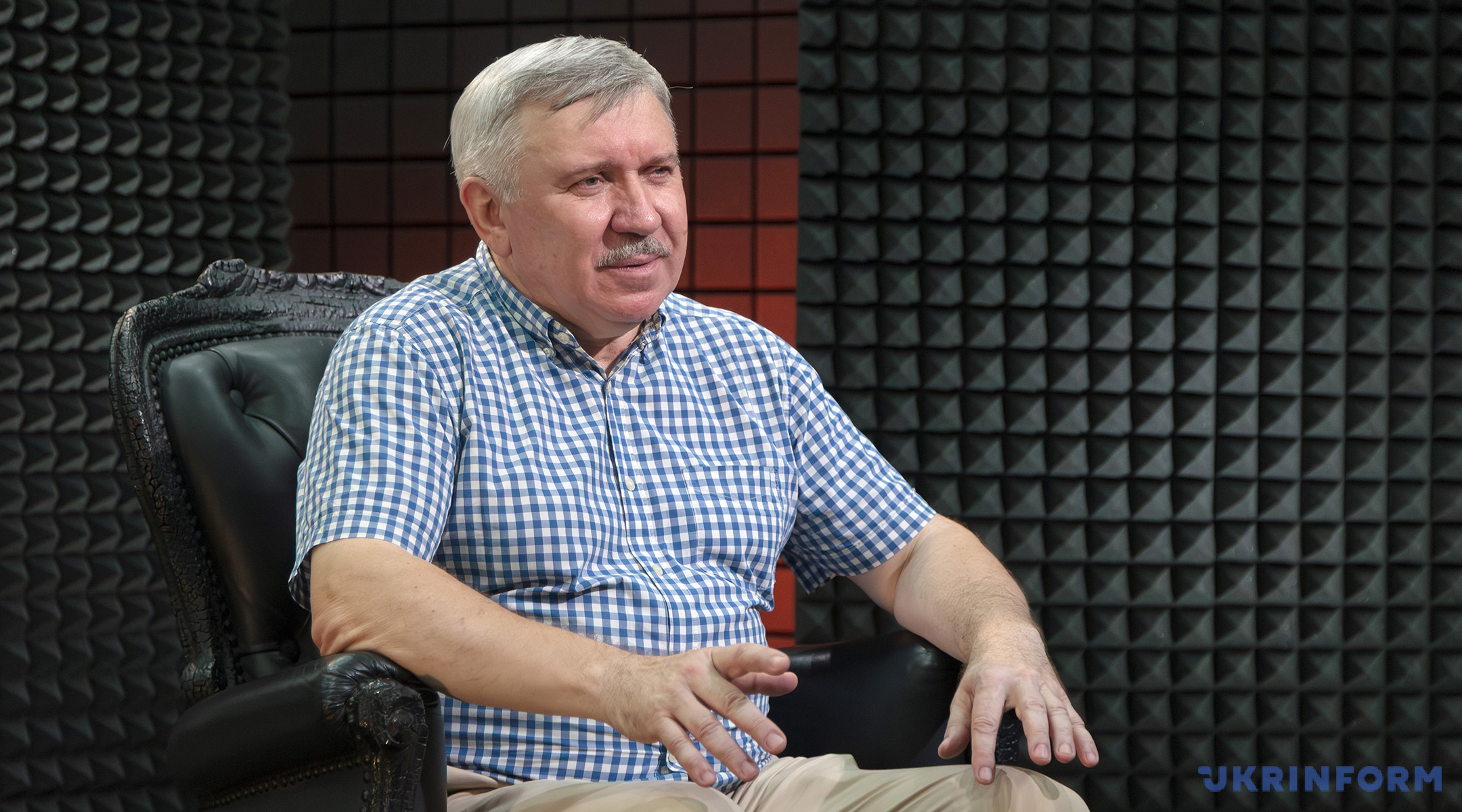
– Strictly speaking, this new round of Istanbul meetings between Ukrainian and Russian delegations began after President Zelensky, on May 10, received the leaders of several countries from the Coalition of the Willing in Kyiv. They jointly spoke by telephone with Donald Trump. And then Zelensky flew to Ankara, met with Erdogan and waited –waited for a confirmation from Moscow and Washington that Putin was ready to fly in and Trump was ready to meet in Istanbul and finally have a serious talk. This did not happen. And now, supposedly, as they in the White House said, this is the Kremlin’s initiative – to hold such a meeting in this sequence: first with Putin, then with Zelensky and ultimately, Trump, Putin and Zelensky at one table. By the way, Trump reportedly spoke about this on the phone yesterday with Zelensky and other European leaders.
It’s of interest who he spoke with: these were UK Preme Minister Keir Starmer and German Chancellor Merz, as well as the NATO Secretary General. Why such a narrow circle?
– As for Starmer, it is pretty obvious. British-American relations have always been special. And I don’t think there is anything strange about it. Merz is the leader of Germany, the largest power in continental Europe. Well, as for NATO, I think that Mark Rutte really likes Trump for his manner of communication and behavior. And he makes such a gesture towards the allies, but at the same time notes that Europeans are not needed there.
– Dad loves Rutte.
– Yes. He has played his role, the kind of, keep going. And this is a very dangerous thing, actually, especially for us. It is a slippery slope where we agree to such a format of a meeting without Europeans at the table. Because one way or another, when Putin talks about eliminating the root causes of the war, it concerns Europe. Because the ultimatum of December 2021 is precisely about Europe. And the format that is now being proposed looks like the war in Ukraine is a war being waged somewhere in Ukraine only, it is not a war in Europe. And this is the slippery path that Putin is pushing Trump onto: to reconcile two former Soviet countries. They are located nearby Europe. This is not Europe proper; they have to be reconciled, and everything will be fine. This approach cannot suit us.
– This is what I am leading to, actually. One can understand what Putin wants: he does not need any Europeans. And in general, from the very beginning he wanted one thing only – to talk to the President of the United States of America and settle the issue. And that’s it. He does not even need the President of Ukraine or anyone else. That being said, Trump, both before and now, during his second term, not only seeks to shift more responsibility to Europe in NATO, but also takes concrete steps in this direction. Look at the decision of the Hague summit, look at Trump’s new approach – I sell weapons to Ukraine, and NATO pays for them. That is, he should supposedly be interested in having more engagement from Europe. But it seems that he did not find arguments or simply forget at the appropriate moment that someone else needs to be included in the negotiations, that there are not enough of those with whom Ukraine will be responsible for security on the European continent. This is hopefully not the final vision. In any case, President Zelensky reportedly intends to hold intensive negotiations precisely with European leaders. This, assumingly, is precisely in order to strengthen or consolidate a common position. We need to speak on behalf of all of Europe, for that matter.
– Absolutely yes. You, being a diplomat, feel these things. And indeed, we must not allow any faults here. It will take both appropriate consultations and, perhaps, telephone calls from Merz or Starmer to Trump. You may remember, this has happened a few times already. Macron called, and they persuaded Trump to change his approaches a little bit. And it worked. I therefore believe such an algorithm can work.
You are right noting that it was Trump who had shifted most of the burden of helping Ukraine onto the Europeans. But here, his approach is very peculiar. He wants the Europeans to give money, and he will solve all the issues himself, without them involved. This cannot but cause a dissonance; this upsets both European leaders and us. We are regarding traditional American policy to be systemic and holistic, but it has actually become fragmented. And, at times, certain things that, it would seem, should be logically connected are actually disconnected.
But there are other examples: in the executive order that Trump signed regarding India, everything is described in detail, which means that it is not Trump’s algorithms that are working, but a reformatted apparatus that has started working. If you look at how India is being approached now, this is not just Trump’s emotional reaction or putting Modi in an uncomfortable position. In fact, a rather systematic approach has been used in recent months: the Saudis have come up with interesting proposals to implement two powerful oil refining and petrochemical projects that India needs to import Saudi oil. Just the other day, American crude arrived in India. That is, Trump is acting with a stick, and there are those who are acting more covertly with a carrot.
Meanwhile, on July 31, the Americans are holding talks with Pakistan regarding American assistance in the development of large oil deposits, which is starting to make India nervous. Here we already see a certain systematic approach to how to tame India and get it back on the righteous path.
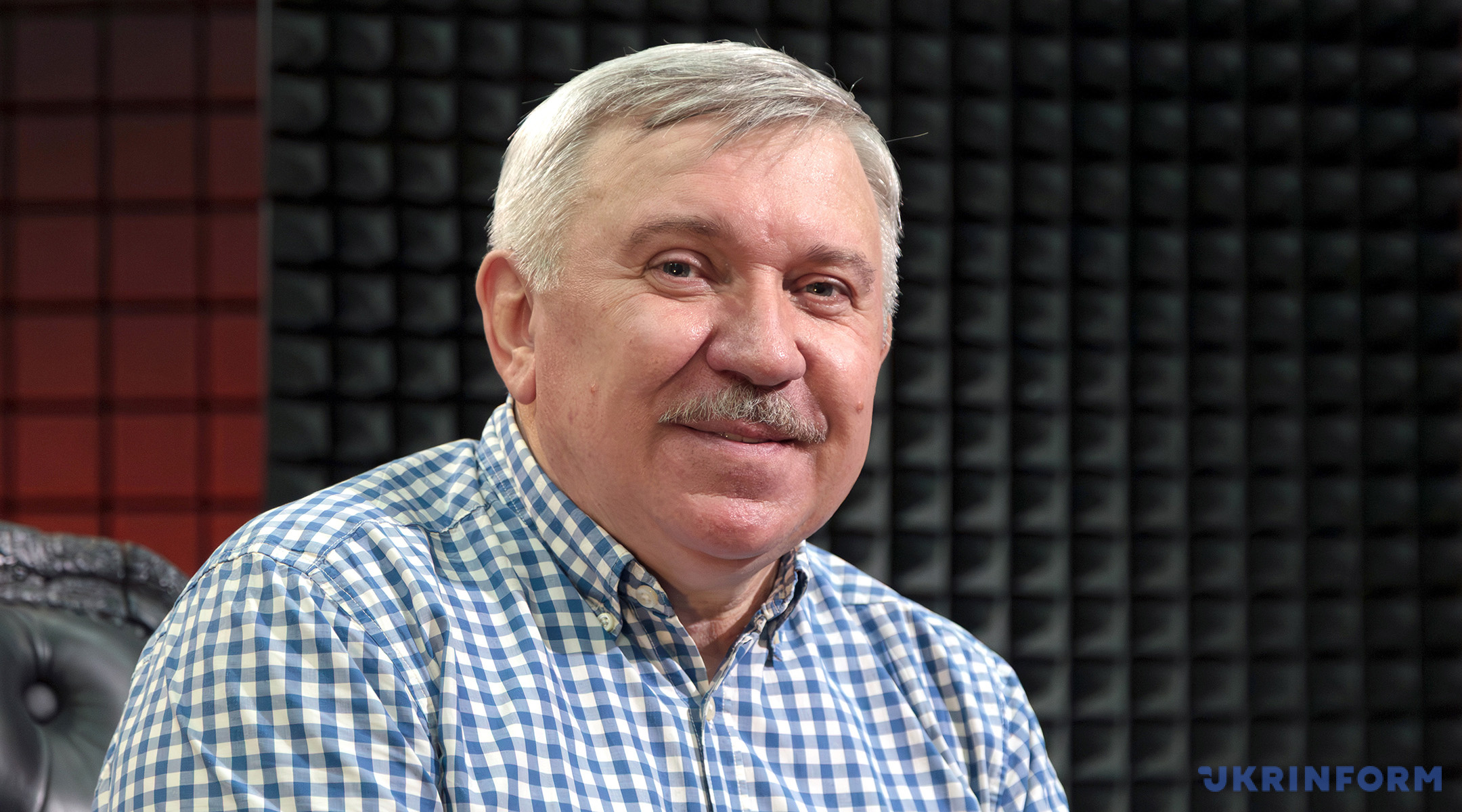
– So, India has become the focus of special attention in the first place. But look at what I highlighted. First, these deadlines and sanctions: August 8 has not been canceled, everything is suspended, the White House says that Trump will make a decision within the next 36 hours. Regarding India, he has already signed the executive order, although it will come into force in 21 days, and the European Union has adopted a new package of sanctions and lowered the price cap on Russian crude oil. So, in the case of the European Union, the sanctions will become effective on September 1, and sanctions against India – in 21 days, and, perhaps, there will also be new sanctions imposed on Russia. But the main question is not when the sanctions will be introduced, but when Russia will feel the effect from this. When can this all really have an impact or at least become perceptible?
– The effect is already perceptible. But, of course, they cannot admit this, we can only see that they have again issued another instruction ordering that certain statistical data, already distorted, must not be published. This is an indicator showing that the situation is really bad for them. But bad does not mean fatal for Russia’s military machine to stop, the system has a certain inertia and a margin of safety. Indeed, this margin of safety is increasingly slim, we are witnessing multiple troubles arising in Russia, of economic and social nature, manufacturing companies are being shut down or switching to a four-day work week. But this does not stop the war machine; the principle followed by Putin and the Kremlin remains unchanged: we shall pay any price. Obviously enough, the talk about limiting the inflow of petrodollars, petrorupees, petroyuans, and so on as much as possible through sanctions regimes. Unfortunately, all these sanctions packages from the European Union are, of course, good, but this is something that gradually accumulates a certain effect that suppresses the Russian economy, but nothing more. This will expectedly make Russia’s economy feel even worse in the fourth quarter, but it will be finished off not so much by the sanctions policies of the United States, Europe, or other countries, but by the downward dynamics of the oil price.
In my opinion, the situation will look catastrophic for Russia when oil prices fall to USD 40, and accordingly, for Urals crude, the price will be a good ten or even 12 dollars lower. And then, in fact, taking into account this long logistics to India, to China, to Brazil, Russia will practically cover its operating costs with the proceeds it earns, let’s say. But again, one should not expect Russia collapsing the next day after the price plummets to 40 dollars per barrel. But if this trend continues, if the Saudis expand their niche in the global oil market, which they are doing gradually, then, basically, the Russian economy is going to crumble next year.
– Trends, tendencies, influences – everything is there, we see it, but we cannot, have no right to rely on them as the only factor in suppressing, defeating Russia. But, in addition to this, there are other levers, other mechanisms and, unfortunately, other hazards. I would like to return to what was happening in the White House, in particular, was voiced in a comment by Marco Rubio. He said that, for the first time, they saw a clear Russian vision on ending the war. We have not seen this yet. There was speculation in the media before Witkoff’s visit to Moscow that it could be about an air truce or something like that.
But Rubio was also speaking about the need to reconcile positions, to bring them closer together. It is obvious that they received some modified position from Russia compared to what is contained in the infamous Russian memorandum, which was handed over to the Ukrainian side in Istanbul. What could have changed there? Issues of territories, of concessions appear again. Rubio again speaks about the need for concessions from both sides. What exactly, what concessions? We can only guess or invent. For some reason, it seems to me that there is nothing significant there. In particular, because Rubio, in his comment, made a cautious mention of a ceasefire that he said may occur at a certain point. At what certain point? Will this be a result of a meeting between Trump and Putin? Or of a trilateral meeting? Could it occur sooner or, rather, later? This brings us again to the same question: what are they going to talk about? What will Trump and Putin sit down at the table with? What will be there on the table? What can we expect?
– Trump continues praising Putin as a nice guy, I don’t think it will be a problem for him to shake Putin’s hand. Another thing is that this will add nothing to Trump’s approval rating within the United States, where most of the people are disapproving of Trump’s behavior towards Putin. And even within his own Republican Party, approaches in this regard differ from what Trump sees they are.
There are indeed several hazards harbored here, regarding, in particular, the so-called air truce. We have already had an energy truce, which ultimately had not worked. Or maritime security in the Black Sea, for example. What did it look like back then? Well, there were no attacks happening right on the sea surface. At the same time, attacks on Odesa city and outside areas, on seaports continued non-stop during this maritime truce. And this is going on now. Therefore, it’s by no chance that the idea of so-called air truce has come about. It came from the Russians precisely now that Ukraine has launched a series of successful drone attacks targeting sensitive facilities in rear Russian regions, particularly oil refineries and railway infrastructure.
This all fits within the logic of fighting, where enemy’s logistics needs to be cut off and frustrated to prevent reinforcements and additional capabilities arriving to the war zone and thereby disable its advance. And, obviously enough, this has had a great influence on the Kremlin, because they see this as a threat, hence the initiative for an air truce. It may look like the maritime one. For example, they will not send strategic bombers Tu-95, Tu-160, Tu-22 armed with missiles, but instead will continue terrorizing Ukraine with Shahed drone attacks. We must understand what they have in mind by proposing “truce in the air.”
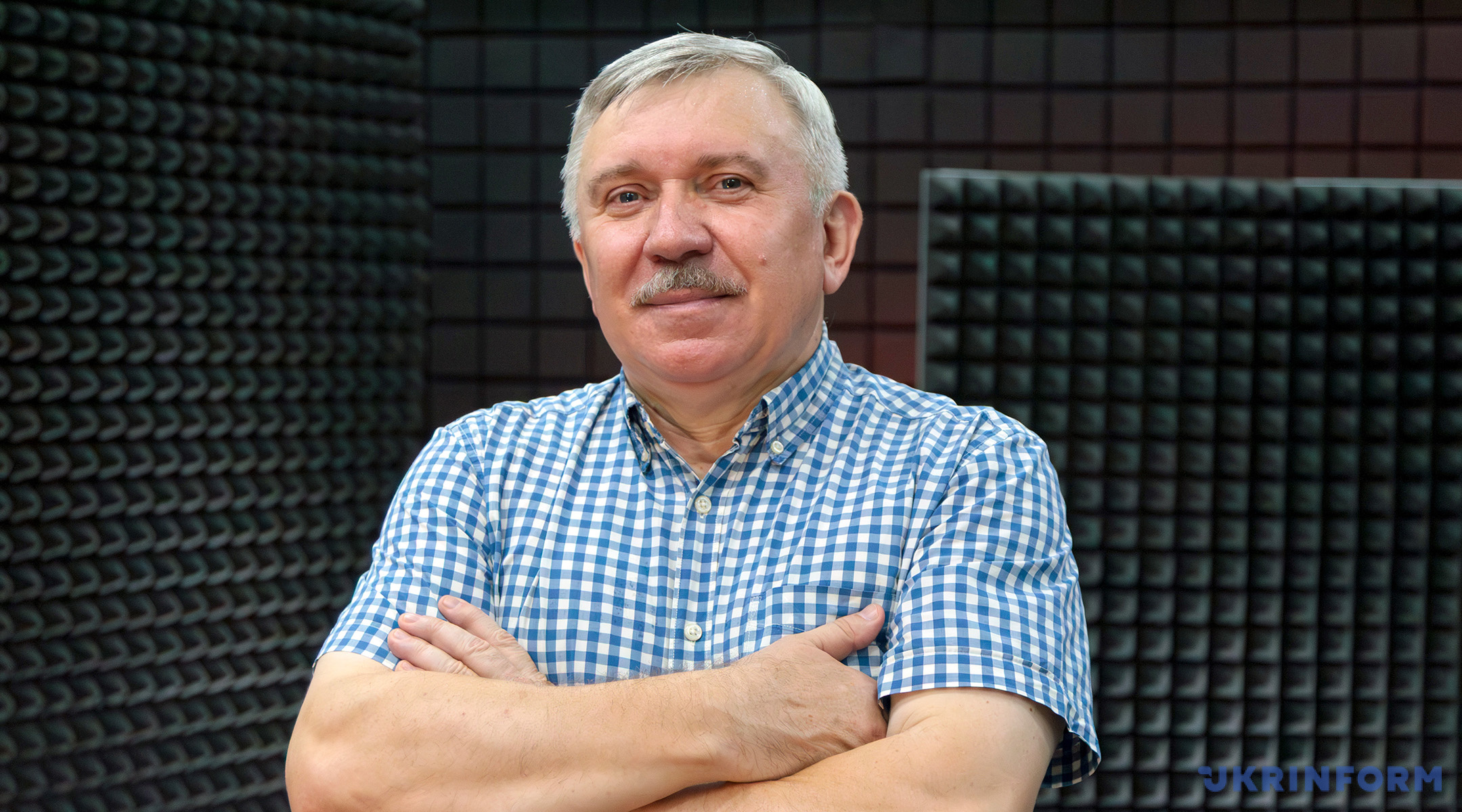
– It is clear that we are talking about events that are hypothetical for us; we have not seen – or maybe there were none – any documents. Maybe there were some non-paper documents that were exchanged in the Kremlin, but we are talking about hypothetical things. President Zelensky probably has more information available to him, since he commented on it this way: “Our shared position with our partners is absolutely definite, absolutely transparent. The war must be ended. And this must be done in an honest way. It is very important to do it honestly. European leaders were on the telephone. I am grateful to everyone for their support. We discussed what was said by Moscow. It seems that Russia is now more inclined to a ceasefire. The pressure on them is working.” So, from those telephone conversations, President Zelensky has received some information, it seems that Russia is now more inclined to a ceasefire. So, a ceasefire, actually, has been the subject of all discussions since February. If we talk about peace, peace negotiations, then nothing has actually changed in this respect, in any case, nothing concrete is known publicly yet.
There are signals of a change in Russia’s stance. At the same time, Rubio is speaking about concessions, about territorial concessions. It is not yet known how President Zelensky responded to this, apart from the official comment, what he said to Trump. What doubts or thoughts did he share with European leaders? Perhaps we will learn more in the coming days left until the already announced Trump-Putin summit meeting. It is not to be expected that one meeting will change everything, this will not happen. Especially since we have heard the same thing from Moscow many times: this meeting must be well prepared. It cannot be held just like that, regardless of whether it is a meeting between Putin and Trump or Putin and Zelensky.
Now something is being prepared at an accelerated pace. What exactly, we do not know yet. The main issue which we have already talked about remains the same — nothing of principle should be decided without Ukraine. We need to consolidate our position with Europe, with European leaders. And this is what President Zelensky is doing today. Then we can only wait. With what mood?
– Well, look: what is the fundamental difference in approaches when it comes to a ceasefire? On the Ukrainian side, officially, we are talking about a ceasefire being a path to follow-up negotiations. On the Russian side, it is the opposite: negotiations that are supposed to end up in a kind of ceasefire.
Let’s recall what the Russian side stated a few days ago. They said that they don’t object to a ceasefire, but it should apply selectively to certain sections of the front. Which ones is nobody’s secret. Or except for which ones? Except for those where the Russians are advancing more rapidly or where we have problems in defense. That is, they want, on the one hand, a sectoral ceasefire to take place somewhere, and maneuver forces and capabilities in such a way so to throw them where they have an advantage on the other. This is unacceptable, needless to say. We have all seen it before at the Minsk talks, but the Kremlin always acts according to certain patterns. And that’s why this, perhaps, is exactly what they suggested to Witkoff.
In other contexts, I don’t see any changes on Russia’s side, despite their economy dying, their practice of using assault groups, meat-grinder assaults exhausting the grouping of forces fighting in Ukraine. That’s why they need a certain operational pause, that’s true.
But in actual fact, they are about to cheat on Trump, seeking to convince him that this is where a progress can be achieved, while simultaneously speaking of the need to put pressure on Ukraine, the kind of “let the Europeans stand aside for a short while so that the three of us could settle everything”.
– Summing it up briefly, it can be said: Trump again believes that Putin really seeks peace. And he is in a hurry to avail of this time when he believes in order to finally meet his friend Putin and talk over everything. I would really hate for this to become yet another demonstration of Trump’s peacemaking successes. After all, he has already settled lots of conflicts: Israel, Iran, the Houthis, India and Pakistan, Cambodia, Thailand, and now Azerbaijan and Armenia have reconciled in the Oval Office. I would hate for this meeting to become another award that Trump will hang on his chest and walk to the Nobel Committee to receive the International Peace Prize.
We have been at war for many days. For Ukraine, this is a question of survival and preservation of statehood, a question of daily losses, daily bombardment attacks, overnight air attacks on Kyiv and other cities.
No matter what the Russian leaders are saying, no matter what signals the Kremlin is sending to Trump or the White House, they continue to kill every day. Therefore, of course, a ceasefire and peace mean to us the most, but not at any cost. A peace, but not the one imposed or agreed upon by someone else, but a peace that we have to reach through this difficult path of negotiations.
So, it’s good that there is progress, on the one hand, but on the other, it is alarming that, instead of, as we expected, the peace achieved through strength, other mechanisms will be used or, at least, there will be an attempt to use them. How successful they will be we will see.
– I would sum it up by saying that the best diplomacy and sanctions are what the Ukrainian Defense Forces are doing. This strengthens our negotiating position, regardless of the format the negotiations will be held. Glory to Ukraine! Heroes of glory!
Ihor Dolgov led this conversation
The interview can be watched in full here
Photo: Kyrylo Chubotin
Source: Mykhailo Honchar, President, Center for Global Studies “Strategy XXI”

